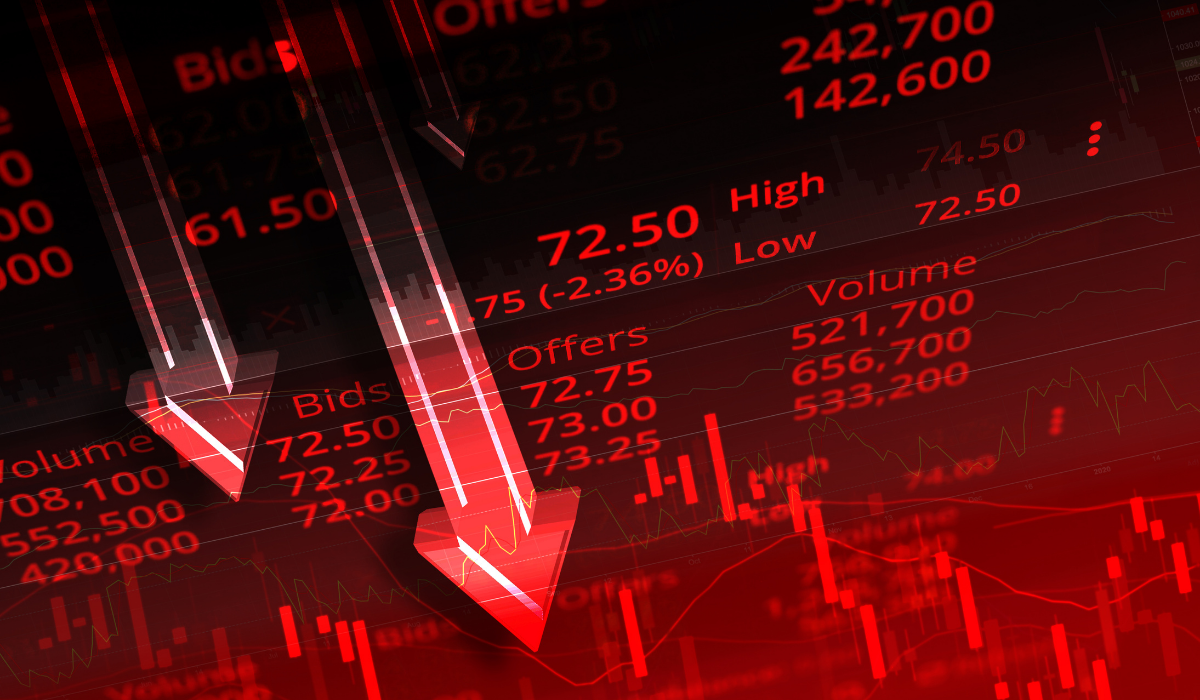Stock Market Crash: What Does It Mean for the Future of the World?
The stock market crash of 1929 in the US has been referred to as the worst financial crisis in history and has resulted in the death of roughly 14 million people. The financial crisis in 2008 was the second-worst after the 1929 crisis. The effects are still being felt worldwide even today, and the world economy is recovering from the impact of the 1929 crash. Stock market crashes are part of life, but they are also part of history. They’ve happened before, and they’ll happen again. But what does it all mean?
There have been several stock market crashes throughout history. Some were caused by greed, some were driven by fear, and some were caused by political turmoil. Today, there is a massive amount of economic instability in the world. A stock market crash means that investors are losing faith in the future of the market, which impacts everything from the economy to the stock market itself.

The stock market crash is the worst financial crisis since the Great Depression of 1929. But the reason why we are in such a crisis is more complicated than just one bad decision by one corrupt bank manager. We must look at the history and evolution of finance to see what caused this current situation. We must understand the causes of this financial crisis before we can understand how to fix it.
What is a stock market crash?
Stock market crashes occur when there is a sudden drop in the overall value of a stock market. This usually happens due to a variety of causes. One common cause is a company issuing a negative earnings report, which causes investors to panic and sells. Another common cause is an economic downturn, which leads to a recession. And then, there is political turmoil, leading to a global crisis. While these are all possible causes, the most common reason is a stock market crash is because of greed. A stock market crash is when a company issues a large profit or loss statement, causing investors to get scared. Investors then decide to sell their shares, causing the price to drop.
Why did the stock market crash?
The Great Recession of 2008 was one of the worst economic crises since the Great Depression. The crash was triggered by an unprecedented decline in the housing market, which was a direct result of the subprime mortgage crisis. The collapse of the economy forced governments to bail out banks and other businesses, resulting in the bailout of the financial system. As a result, the Dow Jones Industrial Average fell below 7,000 points for the first time. But it’s important to understand that this doesn’t necessarily mean the world will end. After all, we’ve come a long way since 1929.
How will a stock market crash affect you?
Stock market crashes aren’t always bad. They can be very good for certain people. A stock market crash can be a good opportunity for savvy investors looking to make money. A stock market crash can also cause a boom, as new investors enter the market and buy up shares. However, a stock market crash can devastate average, everyday investors. Many people who invest in stocks will lose everything. Stock market crashes are often caused by greed, fear, or politics. For example, the Great Depression was caused by the 1929 Wall Street Crash, the Great Recession caused the 2008 financial crisis, and Boris Yeltsin caused the 1998 Russian Financial Crisis.
How does a stock market crash work?
Stock market crashes are a big deal. When they happen, people lose money, and companies go bankrupt. A stock market crash is when a company’s shares drop so much that it causes an economic crisis. When a company’s shares go down, its value falls. A financial crisis often follows a stock market crash. In a nutshell, a stock market crash happens when the value of a company’s shares falls so much that it becomes unprofitable. If the company’s value falls below the cost of its assets, the company goes bankrupt.
To put it another way, a stock market crash is when a company goes bankrupt. The first stock market crash in modern history was in the US in 1929. The Great Depression began in the US in the 1930s. The US government responded to the collision by implementing the New Deal, which included the creation of Citibank, the Federal Reserve, the Federal Deposit Insurance Corporation, and the Securities Exchange Commission.
In the 1960s, another stock market crash happened in Japan. The Great Japanese Asset Bubble burst in the late 1990s, and the country’s economy collapsed. Japan’s stock market dropped 90% between 1996 and 2001. In the US, the stock market crashed in October 1987. The Black Monday crash occurred because of the impact on the technology sector, a rise in interest rates, and the falling dollar. In the early 1990s, another crash occurred. This was known as the Black Wednesday Crash, caused by the European Exchange Rate Mechanism (ERM). On September 16, 1992, the ERM was shut down, and Britain, Germany, Italy, and Spain were forced to leave the group.
Will the stock market crash continue?
While many factors influence the stock market, a few things have a massive effect on the overall trend. These include political events, inflation, and the availability of cheap money. For example, the war would cause a severe economic downturn because it would require a large amount of money to fund. The economy would be in trouble if the government couldn’t generate the necessary funds. Inflation, the rise in the cost of goods and services, causes a downward trend in the stock market because it leads to a higher cost of living.
Cheap money is the most important factor that influences the stock market. It’s easy to get cheap money. Just print it. When the government prints money, it creates more cash in the system. This means more dollars are in circulation, and more money is available for investors.
Because of this, there is a tendency for the stock market to go up. The opposite can happen when the government doesn’t print enough money, resulting in fewer dollars and less money for investors. Of course, the stock market always fluctuates. While some people are optimistic, others are pessimistic. However, the fact that we are experiencing a major stock market crash is very bad.
Frequently asked questions about a stock market crash.
Q: What’s the difference between a stock market crash and a recession?
A: A recession is a slow decline in economic activity, whereas a stock market crash involves the collapse of an entire industry.
Q: How can you tell when the stock market is crashing?
A: When the media says the stock market has crashed, you know it is hitting.
Myths about a stock market crash
1. The stock market always crashes.
2. The stock market always recovers.
3. The economy caused the stock market crash.
4. A particular company caused the stock market crash.
Conclusion
In conclusion, I believe we will see many more of these events in the future. I hope we can avoid them, but I fear they’re inevitable. I hope this article helped you understand a stock market crash and how to prepare for it. If you have any questions, feel free to leave a comment below!















